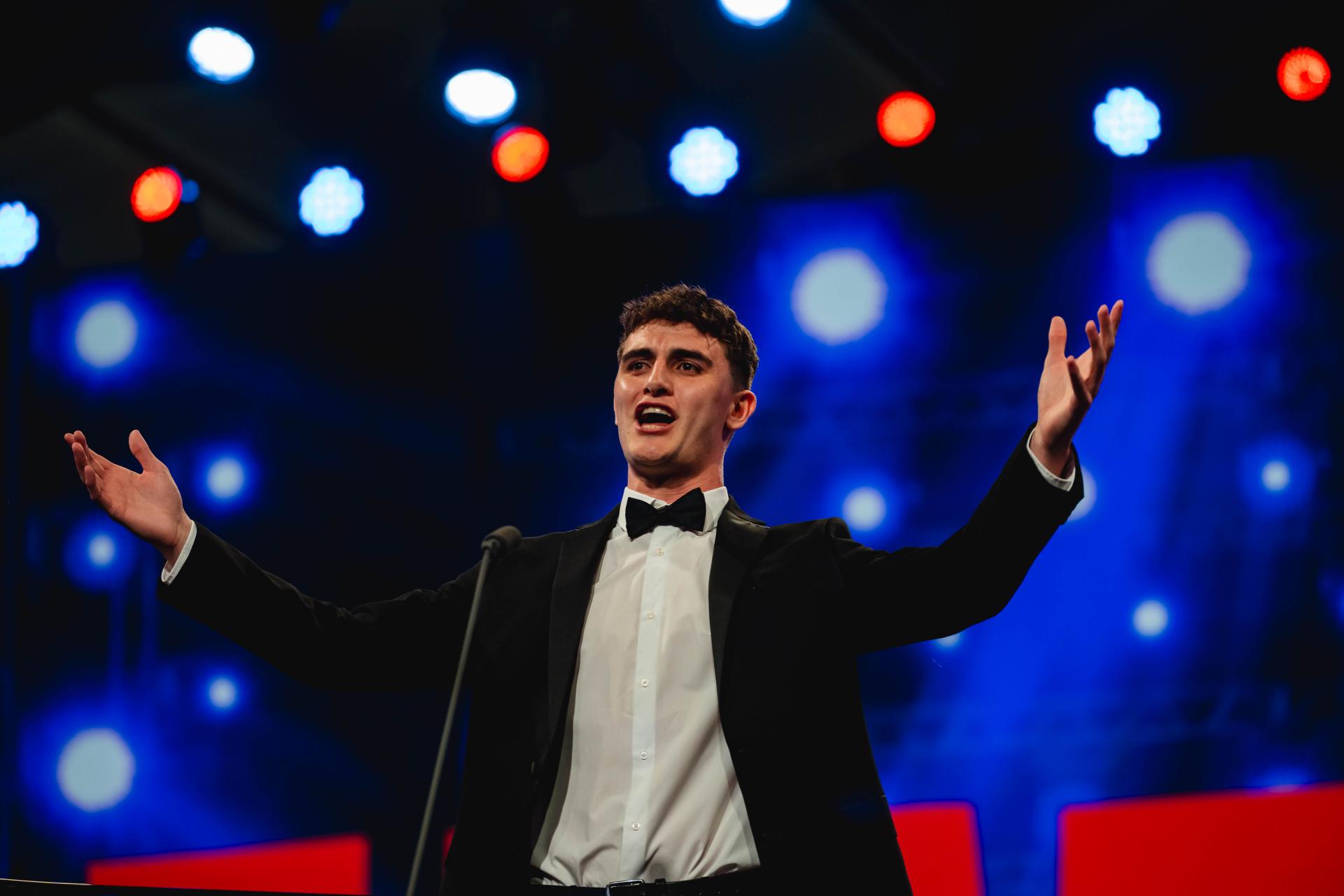A man who began singing only six years ago, and started competing in Eisteddfodau two years ago, sang on the National Eisteddfod stage to victory and was awarded a prestigious scholarship
But before travelling from South Wales to Wrecsam, Caleb Nicholas needed time off from his job as a doctor at the Royal Glamorgan Hospital in Llantrisant, near Cardiff.
Caleb was competing with two other young singers, Lewys Siencyn and Guto Jenkins, for the Osborne Roberts Scholarship after winning the under-25 bass-baritone competition earlier this week.
Caleb said, “I was supposed to be working at the hospital, but I explained why I needed the time off, and the department consultant agreed I could have the day to compete.”
Although Caleb, 24, is a talented singer, he has no plans to pursue singing professionally, “For me, it’s more of a hobby really. I started singing six years ago and, with encouragement from everyone, I began competing in smaller Eisteddfodau as well as the Urdd Eisteddfod and the National Eisteddfod. It’s something I really enjoy doing,” he said.
His tutor is Eilyr Thomas, who herself was honoured at the Eisteddfod this week with the Sir TH Parry-Williams Medal. She said, “He has an excellent voice and is very enthusiastic in what he does.”
The judging panel – Camilla Roberts, Siôn Goronwy, and Fflur Wyn – selected the three most promising individuals from the under-25 classes to compete for this special scholarship. They were ranked first, second, and third.
The winner will also receive an invitation from the North America Welsh Festival (NAWF) to perform at their annual celebration on Labor Day in early September 2026 in Springfield, Massachusetts.
Thomas Osborne Roberts was one of the judges who awarded the first-ever musical prize to Leila Megàne for singing at the Anglesey Eisteddfod in 1910 – their first meeting, and they later married.
He fell ill after judging at the Liverpool Eisteddfod in 1948 and died a few days later. Since 1951, his name has been given to the award at the National Eisteddfod.

